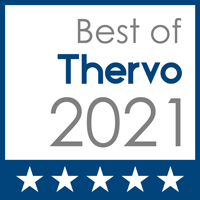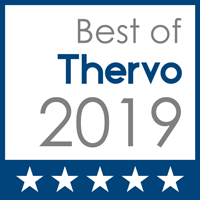House Calls (Home Visits)

Dr. Heather Valinsky, owner of Nurture Family Chiropractic specializes in pregnancy, pediatrics & personal injury. She found at the start of her practice that many patients who needed care during their pregnancies had a hard time getting to either office location in Los Angeles or Simi Valley. Almost out of necessity to provide the care needed to her pregnancy patients and later personal injury lien cases, house calls were born. Dr. Valinsky was able to provide the same care she provides in office with the convenience of not having to leave the comfort of their homes. In some cases, patients were in severe pain during their pregnancies and unable to leave their homes. She was able to provide house calls to mothers after giving birth and unable to leave due to the inability to be mobile, as well as, protection for their newborn infants. In regards to PI cases, some patients were severely injured in their accidents and unable to leave their homes. Dr. Valinsky decided to provide those special cases with in-home care and saw those patients recover, where they would not have otherwise recovered or been able to receive care without house calls. For this reason, we service Los Angeles, Silver Lake, Santa Monica, Culver City, Brentwood, Westwood, Hollywood, West Hollywood, Beverly Hills, Beverlywood, San Fernando Valley, Westlake Village, Agoura Hills, Moorpark, Newbury Park, Calabasas & Thousand Oaks.
House calls provide a unique perspective on patients' environment and health problems. The demand for house calls is expected to increase considerably in future decades as the U.S. population ages. Common indications for house calls are management of acute or chronic illnesses, and palliative care. Medicare beneficiaries must meet specific criteria to be eligible for home health services. House calls can be integrated into practice with careful planning, including clustering house calls by geographic location and coordinating visits with other health care professionals and agencies.
According to The American Academy of Family Physicians, house calls were standard practice for physicians in 1930, when approximately 40 percent of patient encounters occurred in the patient's home. By 1950, this had fallen to around 10 percent, and by 1980, only about 1 percent of patient encounters were house calls. The 2008 American Academy of Family Physicians member survey reported that the average family physician conducted fewer than one house call per week. Renewed interest in house calls is evident in Medicare Part B billings, which increased from 1.4 million visits in 1999 to 2.3 million visits in 2009, in part because of changes in regulations and a 50 percent increase in reimbursement. This trend is expected to accelerate because of demographic changes. By 2030, 70 million U.S. citizens will be older than 65 years. A substantial number of persons will live at home with disabilities that prevent them from traveling to medical facilities. Approximately 15 percent of persons between 75 and 85 years of age report needing help with activities of daily living, such as bathing and toileting, and 36 percent of this age group report difficulty walking at least one block. Due to the fact that existing long-term care and assisted living infrastructure does not have the capacity or capability to meet the projected demand of patients requiring house calls, family physicians are likely to receive increasing demand for their services.
House calls can provide a unique perspective on a patient's life that may not be available in an office visit. A house call can foster the physician-patient relationship, and enhance the physician's understanding of the patient's environment and support systems. This article provides an overview of house calls and suggests strategies to facilitate incorporation of this service into busy practices.
Visits can be performed once (e.g., as part of a comprehensive assessment) or multiple times.
Patients may prefer treatment at home to office care if equivalent outcomes are likely. The choice of location of care is heavily dependent on the physician’s opinion, as well as the patients.
House calls have an increased cost not only due to convenience, but they require advanced planning is necessary to develop the anticipated agenda of a house call. This may include logistics (e.g., supplies, patient education materials), obtaining directions and patient contact information, confirming the visit with the patient and caregivers, and coordinating with other home health care professionals.
Benefits:
- House calls give doctors a chance to check in on patients with less mobility
- House calls save patients time
- About 70% of patients reported requesting a house call for the sake of convenience. Another common reason was to receive services more rapidly.
- House calls increase physician satisfaction
- Physicians are able to spend more time with their patients for a more comprehensive
visit.
- Physicians are able to spend more time with their patients for a more comprehensive
- House calls build instant rapport
- To a patient, having a doctor who makes the time to travel to them is always greatly appreciated — there's no better way for a physician to show compassion and goodwill, which should always be your goal!






